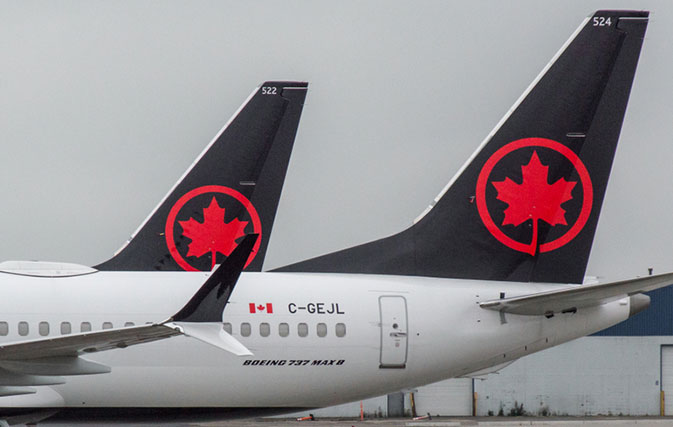MONTREAL — Air Canada will lay off more than half of its 38,000 employees next month as it grapples with the fallout from the COVID-19 pandemic.
The layoffs, which will take place June 7, will affect a minimum of 19,000 staff and could go as high as 22,800.
The country’s largest airline — along with its competitors — has seen demand for air travel evaporate amid ongoing border shutdowns and confinement measures, prompting Air Canada to ground some 225 airplanes and slash flight capacity by 95 per cent.
“We therefore took the extremely difficult decision today to significantly downsize our operation to align with forecasts, which regrettably means reducing our workforce by 50 to 60 per cent,” the airline said in an email Friday evening. “We estimate about 20,000 people will be affected.”
The airline made a similar decision in March to let go of nearly half of its workforce under a cost reduction scheme, only to rehire some 16,500 laid-off flight attendants, mechanics and customer service agents in April under the Canada Emergency Wage Subsidy — a program it has not committed to participate in past June 6.
To minimize the number of layoffs, Air Canada will ask flight attendants to slash their schedules, go on leave for up to two years or resign with travel privileges, according to an internal bulletin to members from the Canadian Union of Public Employees sent out Thursday night and obtained by The Canadian Press.
The memo states that CUPE is in discussions with Air Canada over continuing the federal wage subsidy.
“We know this news is not what any of us were expecting,” states the bulletin, signed by the president of CUPE’s Air Canada component and two other union officials.
“The reality is that COVID-19 has severely impacted the demand for air travel over the past few months and into the foreseeable future. As such, there is no denying that we are dealing with the largest surplus of cabin personnel in our history.”
Though traffic is expected to pick up somewhat before year’s end, Air Canada CEO Calin Rovinescu said last week the recovery will be slow, with at least three years of subpar earnings.
Source: The Canadian Press

